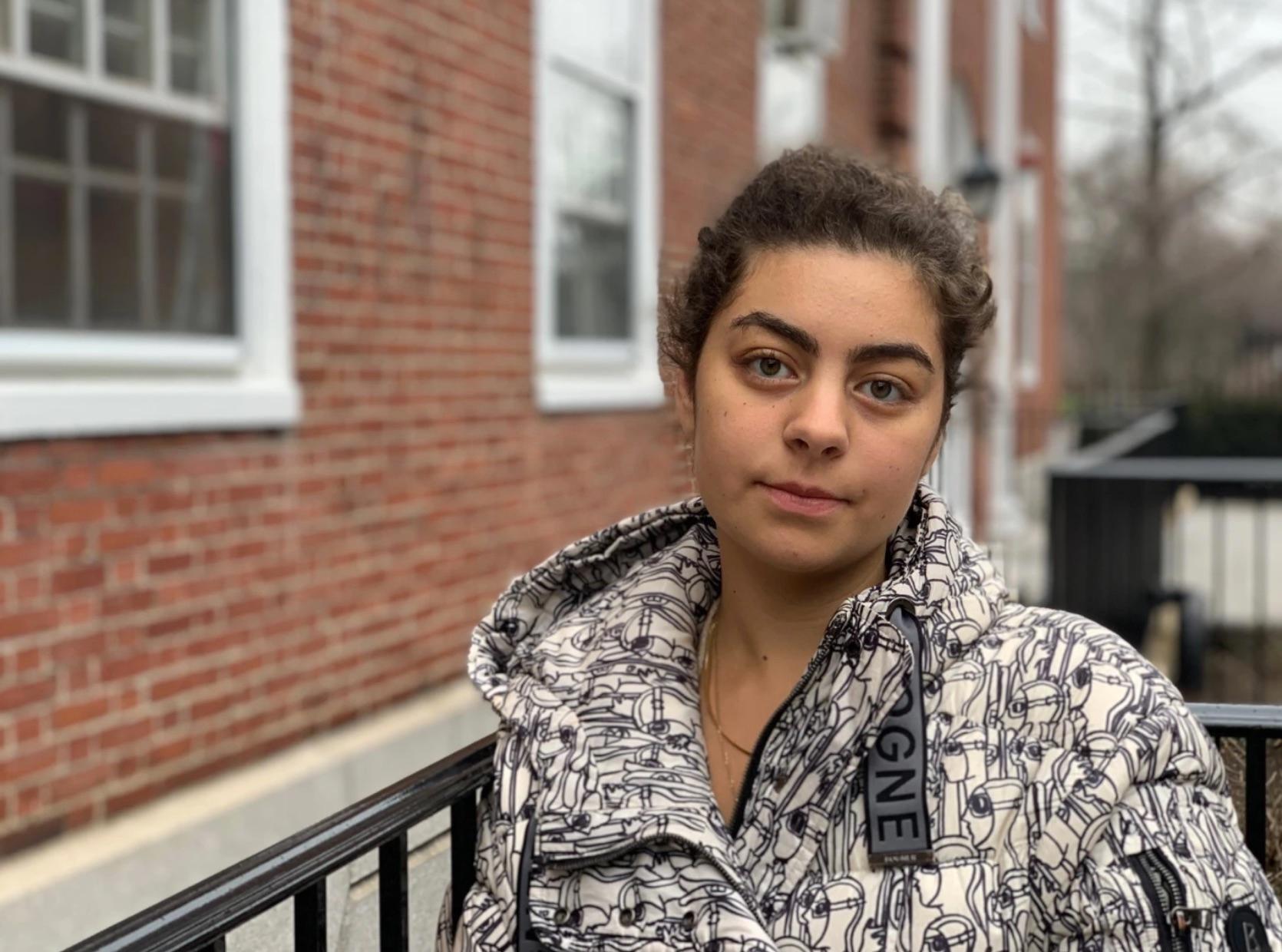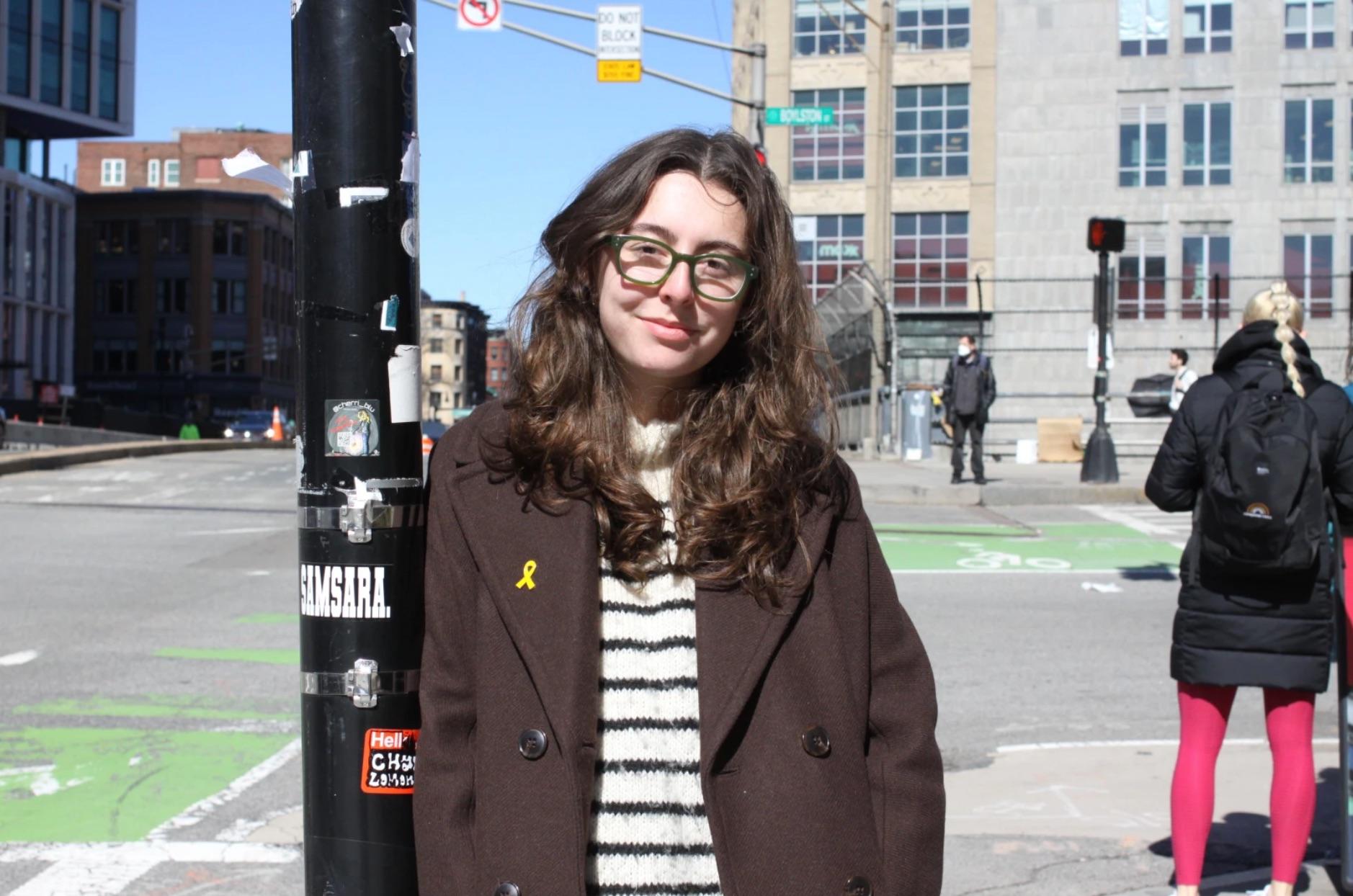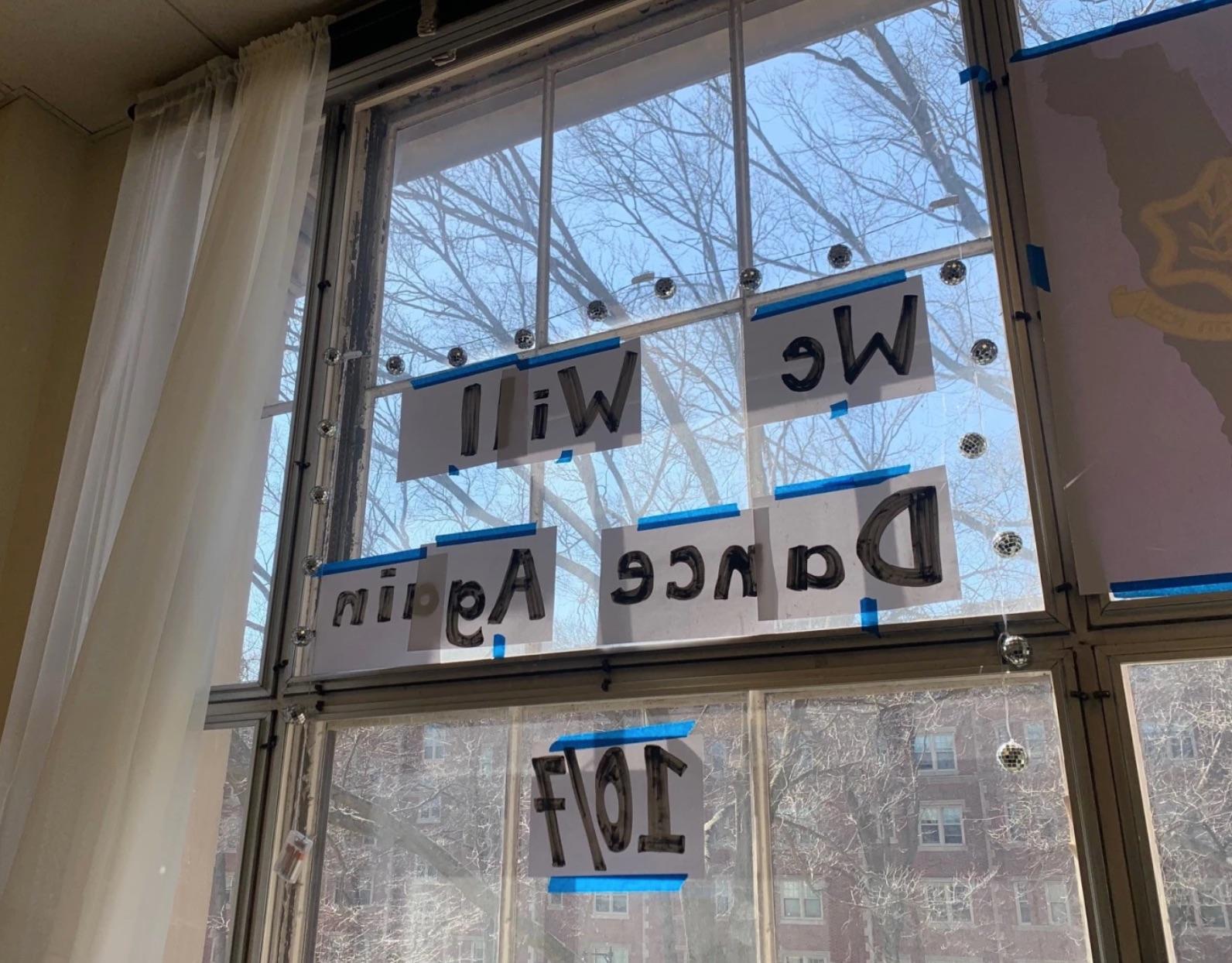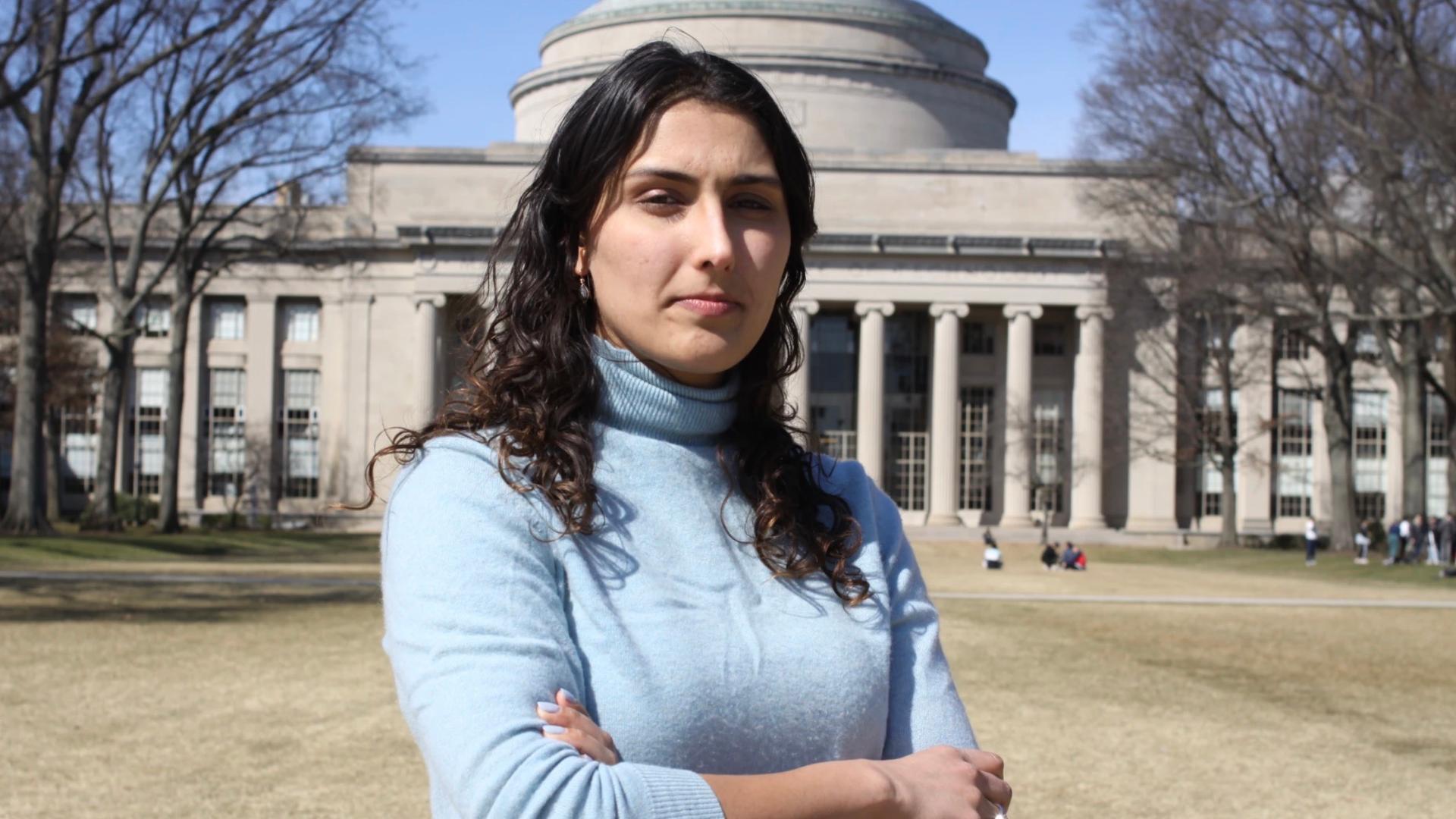MIT graduate student Talia Khan said this year — for the first time in her eight years at the Massachusetts Institute of Technology — she feared for her safety.
Khan, a 26-year-old daughter of an American Jewish mother and Afghan Muslim father, said the polarized climate on campus turned her studies, friendships and mental health upside down.
“I personally had best friends who I spent a lot of time studying with, and they told me that the people who were killed in the Nova [festival] massacre deserved to be killed because they were partying on stolen land,” she said. “It took me so long to process that anybody could say that. There’s no excuse for killing, raping, kidnapping innocent people — kids our own age. It could have been me at that concert.”
Since the Israel-Hamas war erupted five months ago, many students now find themselves isolated on deeply divided college campuses where pro-Palestinian and pro-Israeli students protest, clash and misunderstand each other.
Many worry about their safety. More than a quarter of Jewish college students who participated in a survey by a Tufts University researcher in the weeks following Hamas’ Oct. 7 attack said they need to hide their Jewish identity to fit in. That’s almost double the rate who felt that way in spring 2022.
With both antisemitism and Islamophobia on the rise, a separate report from the University of Chicago found more than half of Jewish and Muslim students — and a sixth of all college students surveyed — feel unsafe on campuses because of their views on the conflict. That’s about 2 to 3 million students nationwide.
“Campus fears are more intense and more widespread than we’ve previously known,” said political scientist Robert Pape, the author of the University of Chicago report.
“Oct. 7 caught us all by surprise, but it especially caught college campuses and universities by surprise,” Pape said.
Campuses are now different places, with students self-reporting that they feel afraid because they’re hearing pro-Palestinian protest chants like “global intifada” and “from the river to the sea, Palestine will be free” that they interpret as a call to genocide.
For Muslim students like Jana Amin, an Egyptian American junior at Harvard, the intimidation and fear from the “doxxing truck” that appeared on campus in October lingers.

Amin’s image appeared on the doxxing truck’s large screen that broadcast images of students involved in pro-Palestinian causes and labeled them “Harvard’s leading antisemites” as it drove around campus. Amin said she felt “devastated” and scared.
“Might someone recognize me from the truck and then choose to take it a step further and turn to violence?” Amin said. “This is our home, too.”
Weeks after the doxxing truck left Harvard Square, Amin said she still hadn’t recovered.
“I definitely think that just seeing the truck allowed to stay there, with my face, forever altered how I was going to think about my time at Harvard,” she said.
Jewish and pro-Israeli students are exhausted and losing patience with college leaders and classmates, according to Miriam Blue, executive director of the Hillel Council of New England, a hub for Jewish campus life at Boston College, Simmons University and other campuses
“They’re burnt out. They’re scared. They’re threatened, sometimes daily,” Blue said.
Pro-Palestinian protests occur in areas where Jewish students live off campus, including downtown Boston, which makes navigating their daily life challenging. Some protests have drawn thousands of student activists.
“It’s literally in their face all the time,” she said.
Blue said one reason no one is talking across the divide may be because many college students were middle and high school students during COVID-19, so they’re still emerging as adults. They’re also spending a lot of time online in front of screens.
“They don’t have to look someone in the eye,” she said. “They can just turn off their camera. They can just ‘unfollow.’ They don’t have to engage in anything that puts them out of their comfort zone.”

Becca Packer, a senior at Berklee College of Music, said many of her pro-Palestinian peers are unwilling to have difficult conversations about the conflict.
“It’s their way or the highway,” said Packer, a Jewish student who belongs to a recently formed Hillel group at Berklee and who has cousins in the Israeli Army.
Sitting in the back of a coffee shop off Boylston Street on a recent morning, Packer recalled how some of her peers shared antisemitic posts on social media and attempted to deny violence against Israeli women after the deadly attacks on Israel by Hamas.
“People are very quick to jump on a train when there’s a trending view going around,” she said. “One of my first things that I knew I had to do was get on Instagram and try and be that opposing perspective that people aren’t going to see because I knew exactly what was going to happen.”
Packer said a lot of the antisemitic social media language described Jewish and Israeli people as “colonizers.” Her classmates also shared infographics saying that American Jews control media and entertainment.
It made her wary of the students in her midst.
“You don’t think that the people who are sitting in your classrooms next to you have those views, and they don’t express them in person either,” she said.
On smaller college campuses like Berklee, Suffolk University and Emerson College, Blue said Jewish students, even if they’re not pro-Israeli activists, are sometimes questioned or even excluded because of their race or ethnicity.
“‘Oh, you’re Jewish, what do you think?’ or ‘You’re Jewish, you’re not welcome in this club,’” she said, referring to progressive organizations.
Some colleges have taken steps to ease the fear.
Dartmouth College created a curriculum called “Politics of Israel and Palestine.” Professors who specialize in the Middle East make themselves available through in-person and online forums that give students, faculty and the general public opportunities for open, uncomfortable conversations about the war.
“The climate has been, honestly, incredibly supportive,” said Roan Wade, a pro-Palestinian student activist at Dartmouth who was arrested last semester after she occupied an administrative building during a peaceful protest.
Wade, who was raised Catholic, said such measures have helped, but the campus climate is still troubling. She said she’s been harassed, doxxed and called “a terrorist” online and on campus by a small group of Zionist students.
“It’s been very heated,” said Kevin Engel, a pro-Palestinan activist at Dartmouth who was also arrested for trespassing during a protest. “We’ve seen a lot of pushback from the administration on issues such as divestment or even acknowledgment of Palestinians.”
After a 12-day hunger strike, Engel said the college finally recognized Palestinian students.
“Prior to this there was not even an email about Palestinian students,” he said. “So it’s been very tough.”
Engel, a first-year student from Oklahoma, said administrators and pro-Israeli students have characterized him and other activists as violent. During one sit-in, he said a group of drunk students called him a terrorist.
Earlier this month, the college clarified that the pro-Palestinian protests on campus have been nonviolent.
At MIT, students and faculty said the climate remains tense.
Some professors whose research is supported by federal funding said that they have been intimidated and falsely accused of committing “scientific complicity” and taking money directly from the Israeli Ministry of Defense.

Talia Khan, the MIT graduate student, said many of her classmates, wherever they stand on the Israel-Hamas war, fear getting canceled on campus and online for expressing their views.
“They’re afraid of seeming anti-woke,” she said. “I think that social media has really changed what it’s like to be a young person on campus.”
Some of Khan’s former friends and current classmates have blocked her on Instagram and other social media platforms after she became outspoken in her support of Israel.
“They didn’t want to listen. They wanted to stay in their bubble,” she said. “It’s awkward seeing people that you were once really good friends with who now refuse to talk to you or look you in the eye just because you believe that Israel has a right to exist and they do not [believe that].”
Khan said she is in a unique position to help bridge ideological divides on campus due to her Israeli and Muslim background. Earlier this month, she was invited to the State of the Union address by House Speaker Mike Johnson.
Standing under MIT’s Great Dome, she said administrators still haven’t done enough to repeatedly condemn and discipline those who espouse hateful rhetoric on campus.
That would bring her closer to feeling safe again, she said.
Editor’s note: An earlier version of this story misquoted Miriam Blue. She said Jewish students have been excluded from progressive clubs generally, not pro-Palestinian clubs specifically.
An earlier version of this story was published on GBH News.
